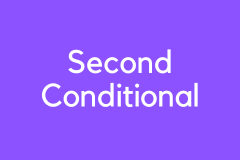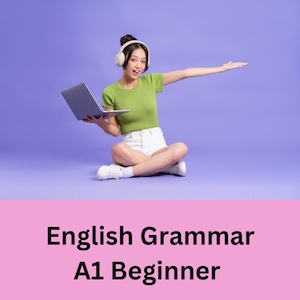Second Conditional
Learn how to use the second conditional in English.
Can you answer these grammar questions correctly?
Second Conditional
Point 1: The second conditional refers to the future, but it describes situations that are unlikely or imaginary.
- What would you do if you won the lottery?
- I would quit my job. What would you do?
- I would move to the beach.
- I would do that too if I could swim!
Point 2: The 'if' clause can start the sentence or come at the end.
- I would be very happy if I saw a full eclipse.
- If I saw a full eclipse, I would be very happy.
- If I were tall, I would try out for the basketball team.
- I would try out for the basketball team if I were tall.
Point 3: In affirmative sentences, you can use 'd instead of would to make contractions.
- I'd be very happy if I saw a full eclipse.
- If you saved your money, you'd be rich.
- If they came to class more often, they'd pass.
- If we practiced more, we'd be pretty good.
Point 4: You can also use 'could' instead of 'would' to talk about ability or possibility.
- I could travel the world if I were a billionaire.
- If I spoke Spanish, I could work in Costa Rica.
- If you tried harder, you could get an A in the class.
- If you saved your money, you could afford to travel.










